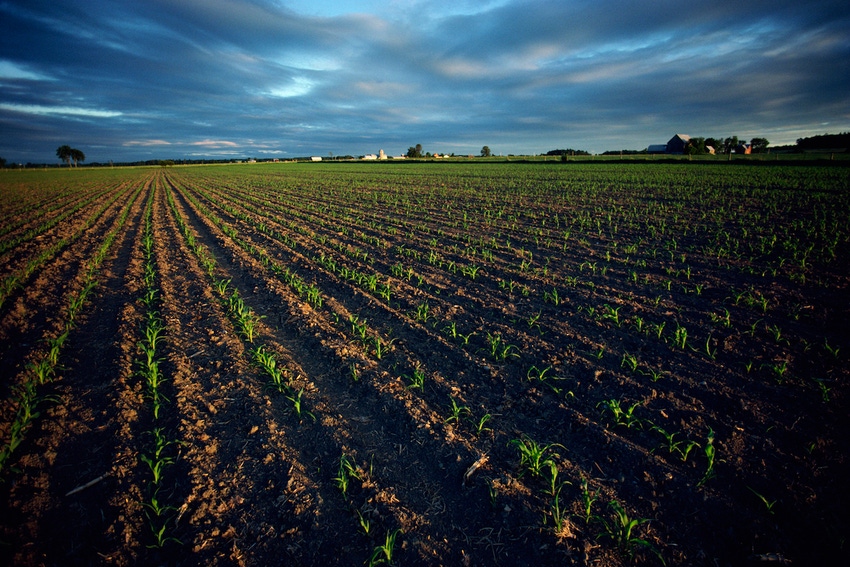
Corn bulls are keeping a close eye on abnormally hot temps and dry conditions early in the U.S. growing season. Several areas across the U.S. reported record setting heat, some towns breaking century old records.
The question is does an abnormally hot May lead to an abnormally hot June and July? And how much soil moisture will be pulled out of the ground? Most will say it's awful early to be stressing the crop, in fact, bears argue the recent warm up will give the crop in many areas a "shot in the arm" boosting growth and bringing Growing Degree Units back to more historical levels. I'm a little more uncertain about that theory, especially after referring back to an article the University of Nebraska published a couple of years back. Their research shows...
"Whether in the presence or absence of adequate soil moisture in the soil profile, heat stress can be an important risk and/or limitation to plant growth and development. While some crops are more susceptible to heat stress during critical growth stages [e.g., pollination for corn and R3 (flowering) stage for soybean], both corn and soybean are also susceptible to extreme heat (and water) stress during early vegetative stages.
Extreme heat stress can reduce plant photosynthetic and transpiration efficiencies and negatively impact plant root development, which collectively can negatively impact yield. The decline in the photosynthetic rate under both heat and water stresses are frequently attributed to
lowered internal plant CO2,
inhibition of photosynthetic enzymes (e.g., Rubisco) and
synthesis of ATP (adenosine triphosphate), which produces chemical energy that is needed for regulating plant biochemical reactions.
Extreme heat stress (even in the presence of adequate soil moisture) can cause a reduction in plant stomatal conductance, which reduces plant transpiration rate, causing reductions in plant productivity and yield. If extreme heat stress is coupled with dry wind over the plant canopies, the magnitude of stomatal closure and the reduction in rate of transpiration is greater for corn and soybean.
Heat stress is a complex function of intensity, duration, and the rate of the increase in air temperature. In addition, the effect of an increase in soil temperature (as a result of increase in air temperature) may be even stronger when accompanied by a decline in soil water content."
Read the full article HERE
Bottom-line, I have to believe that any "extreme" shift in air and soil temperatures can have an adverse and perhaps longer-term impact on the plant. I also believe "shallow-rooted" crops, which I have to imagine we have a lot of this year, are also less tolerant to "extremes".
About the Author(s)
You May Also Like






